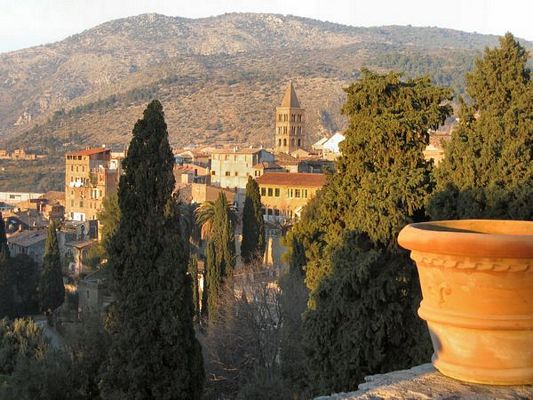 Carrara, also called Carraresi, were a medieval Italian family who ruled first as feudal lords about the village of Carrara in the countryside of Padua and then as despots in the city of Padua.
Carrara, also called Carraresi, were a medieval Italian family who ruled first as feudal lords about the village of Carrara in the countryside of Padua and then as despots in the city of Padua.
On transferring to Padua itself in the 13th century, the Carrara exploited the feuds of urban politics first as Ghibelline and then as Guelf leaders and were thus able to found a new and more illustrious dominion. The latter began with the election of Jacopo da Carrara as perpetual captain general of Padua in 1318 but was not finally established, with Venetian help, until the election of his nephew Marsiglio in 1337. For approximately 50 years the Carraresi ruled with no serious rivals except among members of their own family. Marsiglio was succeeded without incident by Ubertino (1338–45), but Marsigliello, who succeeded Ubertino, was deposed. The Carrara court was one of the most brilliant of the time. Ubertino in particular was a patron of building and the arts, and Jacopo di Niccolò was a close friend of Petrarch.
The lordship of Padua, however, though it extended to Belluno and Feltre (1361) and to Treviso (1383), was too small and finally too unpopular to survive the cupidity of greater neighbours, especially Venice and the Visconti of Milan. Francesco il Vecchio, reversing the family policy, inclined to the Visconti against the Venetians and formed an alliance (1385) with Gian Galeazzo Visconti against the della Scala, who were backed by Venice. His policy was ill-conceived: though Verona was taken, the Visconti promptly formed a further alliance with Venice itself and the Este for the conquest of Padua. Francesco had to surrender his dominions (1388) and died a prisoner of the Visconti (1392). His son and grandsons tried to retrieve their family fortunes but were ultimately destroyed by the Venetians.